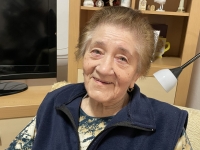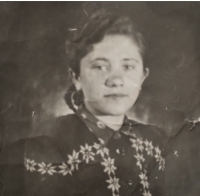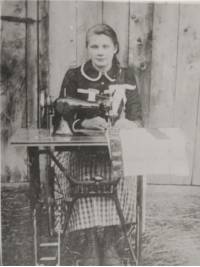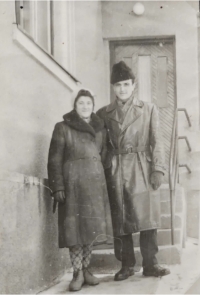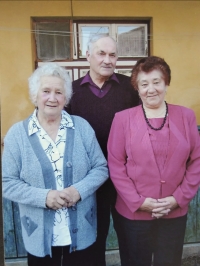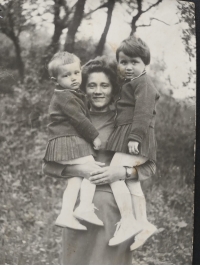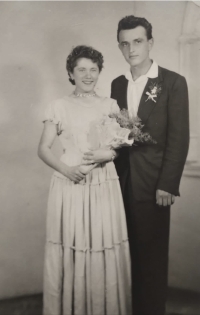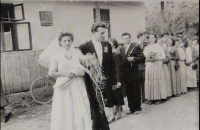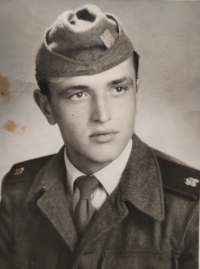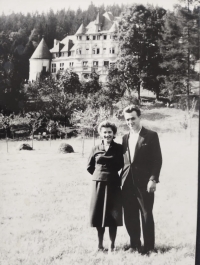The German pointed a gun at the father that he was going to shoot him when the father did not want to let the pig be killed

Stáhnout obrázek
Olga Domanická, born Verešová was born on July 12, 1940 in Kamenná Poruba in Rajecká dolina to Ondrej Vereš and Mária, born Letková. She had three siblings. During the war, the family experienced terror from German soldiers who occupied the villages of the Rajecká Valley and made frequent raids. They threatened to shoot the father when he did not want to hand over the pig that the family kept for the winter to the Germans. The family lived on the edge of the upper end, which was all evicted to the meadow and they threatened to burn down their houses. Later they were taken in by an unknown family. After returning home, they found the barns empty. A partisan brigade was based in nearby Kunerad, and the surrounding mountains were full of partisan groups. Her parents supported the resistance, her mother cooked goulash from the meat brought to them by the partisans, and her father then drove it to the mountains. Olga received a doll from a German soldier because it reminded him of the daughter he had at home. The parents saved the prisoner whom the Germans brought to them, later after the war he came to thank them. After finishing school, she got a job at MNV (local national committee), because of her father, who did not want to join the cooperative, she lost her job. She was engaged in volunteer theater, got married, gave birth to four children, and was not involved in politics. Currently a pensioner, she still lives in Kamenná Poruba.
